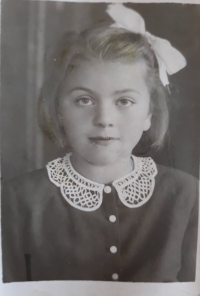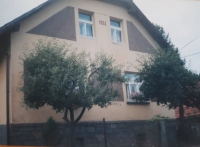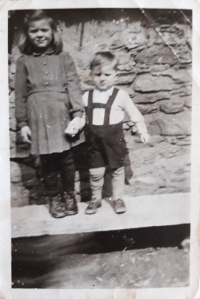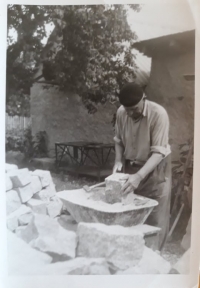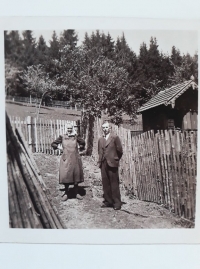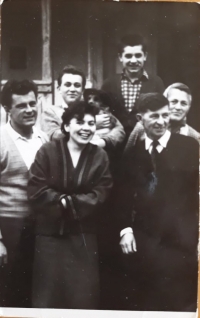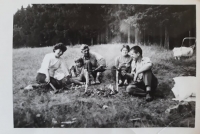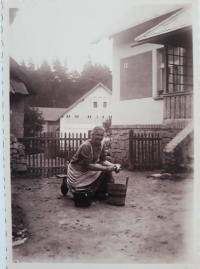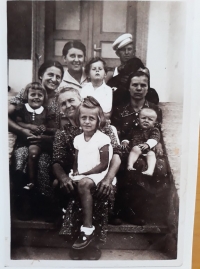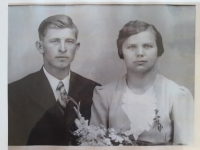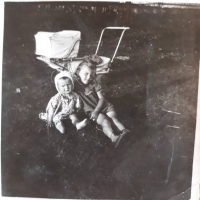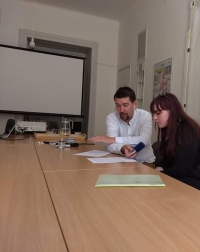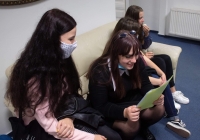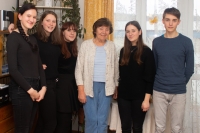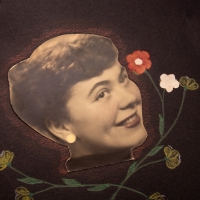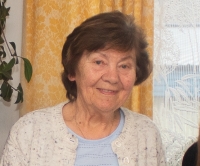Even after twenty years, I kept looking for her

Download image
Hana Vondrášková née Kontová was born on July 24, 1937 in Holušice near Kozárovice in the Příbram region, she had a four years younger brother. Father Josef Konta worked as a stonemason in the granite quarries in Kozárovice, mother Marie looked after the children in a rich Jewish family in Prague before the war; later she was at home. From April 1944, the family assisted four paratroopers from the Chalk airdrop with hiding and supplies. A month later, the group was betrayed. In May 1944, the Gestapo arrested Hanina’s father, Josef Konta, and took him to Terezín and later to Mauthausen. Hana and her brother managed to escape to their grandparents during the raid, and their mother was released. She was not arrested by the Gestapo until August 1944. She was taken to Terezín, where she met her husband briefly, then moved to Ravensbrück. Hana grew up with her aunt in Prague, her brother also stayed in Prague, but with other relatives. Hana spent the end of the war with her grandparents in Holušice and recalls the liberation by the Red Army in May 1945. After the war, only her father returned from the concentration camp, and for several years he stayed in various hospitals and sanatoriums with tuberculosis and bone tuberculosis. It was not until 1968 that Hana learned what had happened to her mother during a family reunion in Ravensbrück. Hana Vondrášková graduated from a pedagogical grammar school, then taught at the primary school in Chraštice and until 2002 at the 5th primary school in Příbram. She got married in 1959 and had two children. She recalls the arrival of the occupying forces in August 1968 and the Velvet Revolution in November 1989. Nowadays she lives in Příbram.
